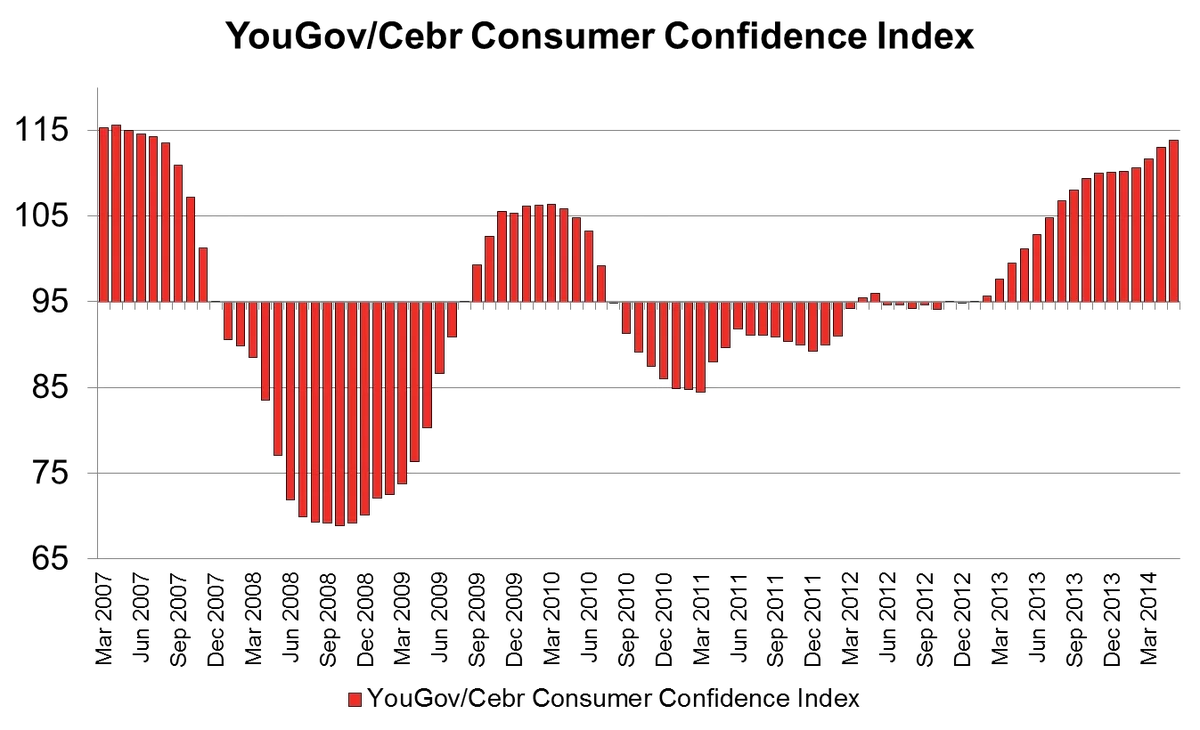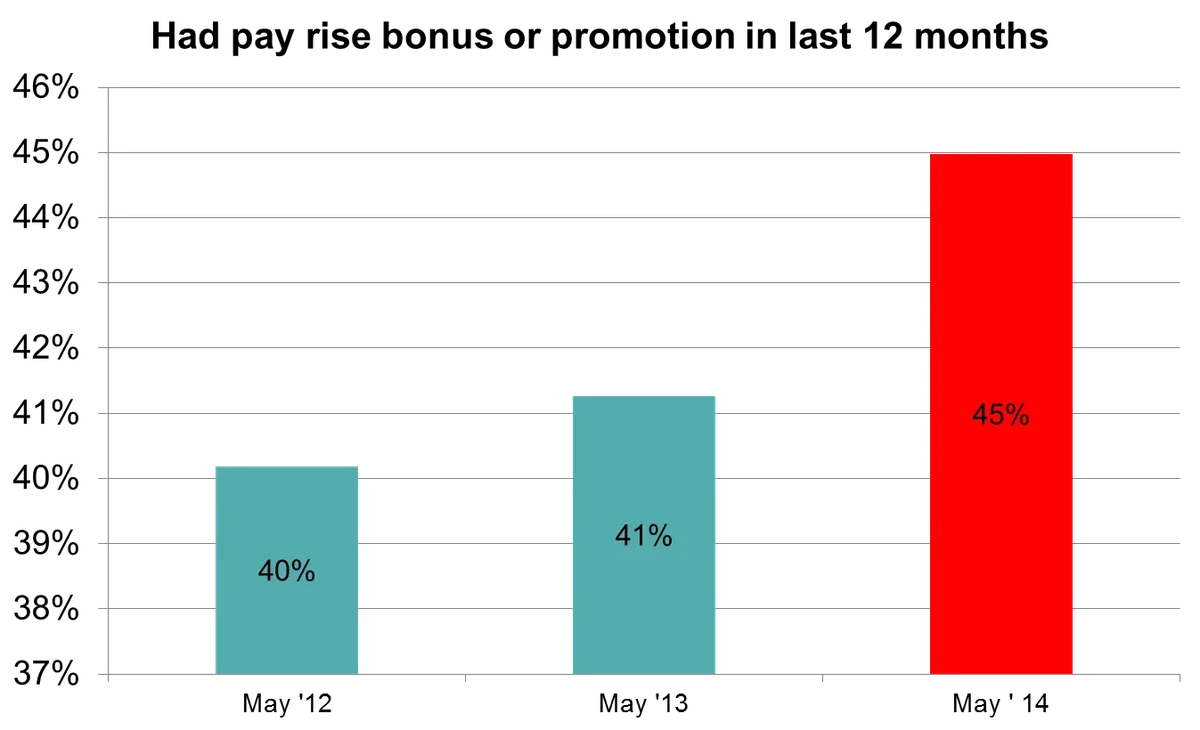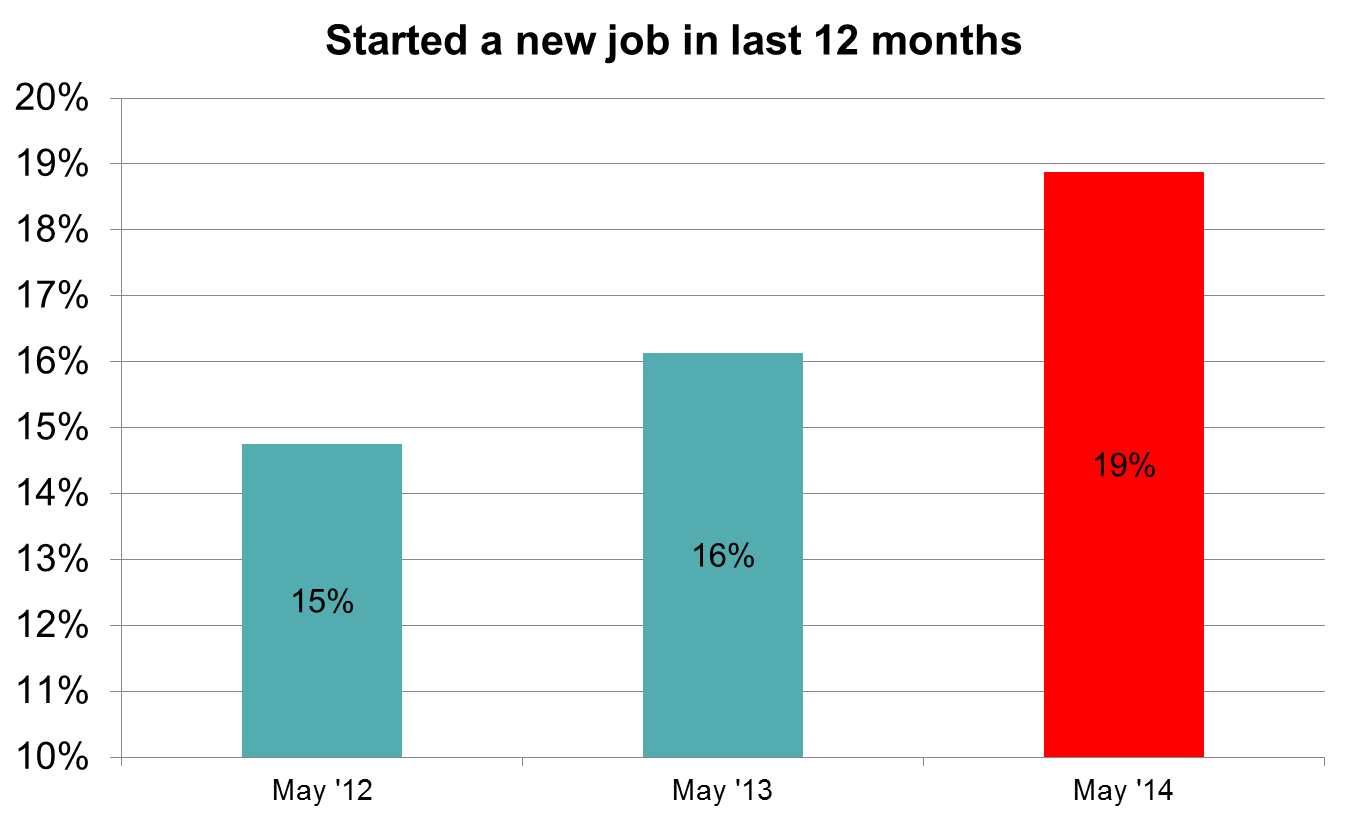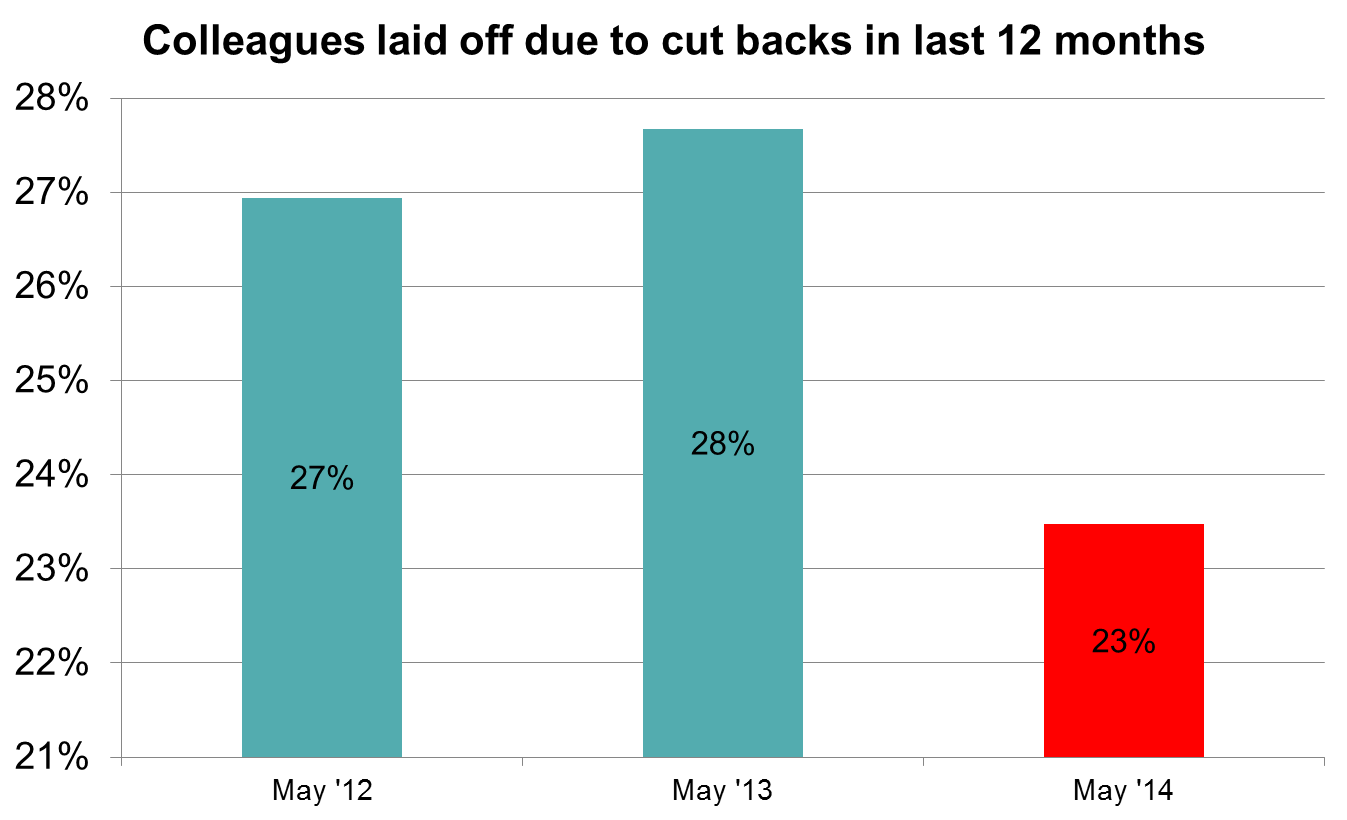Consumer confidence has reached its highest level in almost seven years as economic optimism among British workers increases, new figures from YouGov and the Centre for Economics and Business Research suggest.
The research shows marked year-on-year improvements in the number of employees receiving pay rises, bonuses and promotions as well as the number of people starting new jobs. Furthermore, the data, taken from YouGov’s Household Economic Activity Tracker, find that fewer people have seen colleagues laid-off in the past twelve months.
Meanwhile, the YouGov/Cebr Consumer Confidence Index is at its highest level since July 2007, before the financial crisis, and is close to reaching its pre-credit crunch peak.
Stephen Harmston, Head of Syndicated Research at YouGov: ‘Over the course of the long recession and slow recovery consumer confidence has been somewhat fickle. However, the improvement in the labour market suggests that economic optimism is starting to reach workers as well as consumers; it is clear that this recovery has legs. The economy is now safely approaching escape velocity and over the course of the summer consumer confidence will surge past its pre-recession peak, which is good news for the Government ahead of next year’s general election.’
Charles Davis, Director at the Centre for Economics and Business Research: ‘To date, much of the recovery has depended on home owners bolstered by rising house prices and stronger confidence on the back of that. However, these figures suggest that at long last workers are also starting to drive things forward, too.
'As business investment increases companies are also starting to invest in staff. This is adding oxygen to the economic water and as a consequence the labour market is improving with more people experiencing pay rises, promotions, and bonuses as well as workers seeing an increased competition for their services.
‘This is good news for the economy as a whole as rising real incomes can fuel sustainable increases in consumer spending, although it does pose questions about when the Bank of England will need to increase interest rates to dampen inflationary pressures caused by rising pay.’
YouGov/Cebr Consumer Confidence Index
The YouGov/Cebr Consumer Confidence Index is at 113.9, its highest level since July 2007. Over the past month it has increased by +0.9 points and over the last year it has risen by +12.7 points. It now stands just 1.7 points below its highest ever level, recorded in April 2007.

Source: YouGov/Cebr HEAT data, May 2014, using a three-month rolling average.
Notes: Axis value of 94.9 represents the average HEAT Consumer Confidence measure since the data set began in 2007.
Increase in pay, promotions, and bonuses
There has been a notable year-on-year increase in the number of people receiving pay rises, promotions or bonuses. In May 2012, 40% had received at least one of the three in the previous 12 months, a level that barely improved in May 2013 (41%). However, the figure for this month shows that 45% of people have received a promotion, pay rise or bonus over the past year.

Source: YouGov/Cebr HEAT data, May 2014, using a three-month rolling average.
New jobs
The improvement in the number of people seeing pay increases, promotions and bonuses comes as more people start new jobs. There has been a three percentage point year-on-year improvement in the number of people starting new jobs in the last 12 months, after just a one percentage point increase between May 2012 and May 2013.

Source: YouGov/Cebr HEAT data, May 2014, using a three-month rolling average.
Fewer redundancies
The increasing confidence in the labour market as shown by improved rewards and prospects comes as fewer businesses are making people redundant. Whereas 27% and 28% in 2012 and 2013 respectively had seen colleagues laid off over the previous 12 months, the latest figures show that this has declined to 23% in May 2014.

Source: YouGov/Cebr HEAT data, May 2014, using a three-month rolling average.









